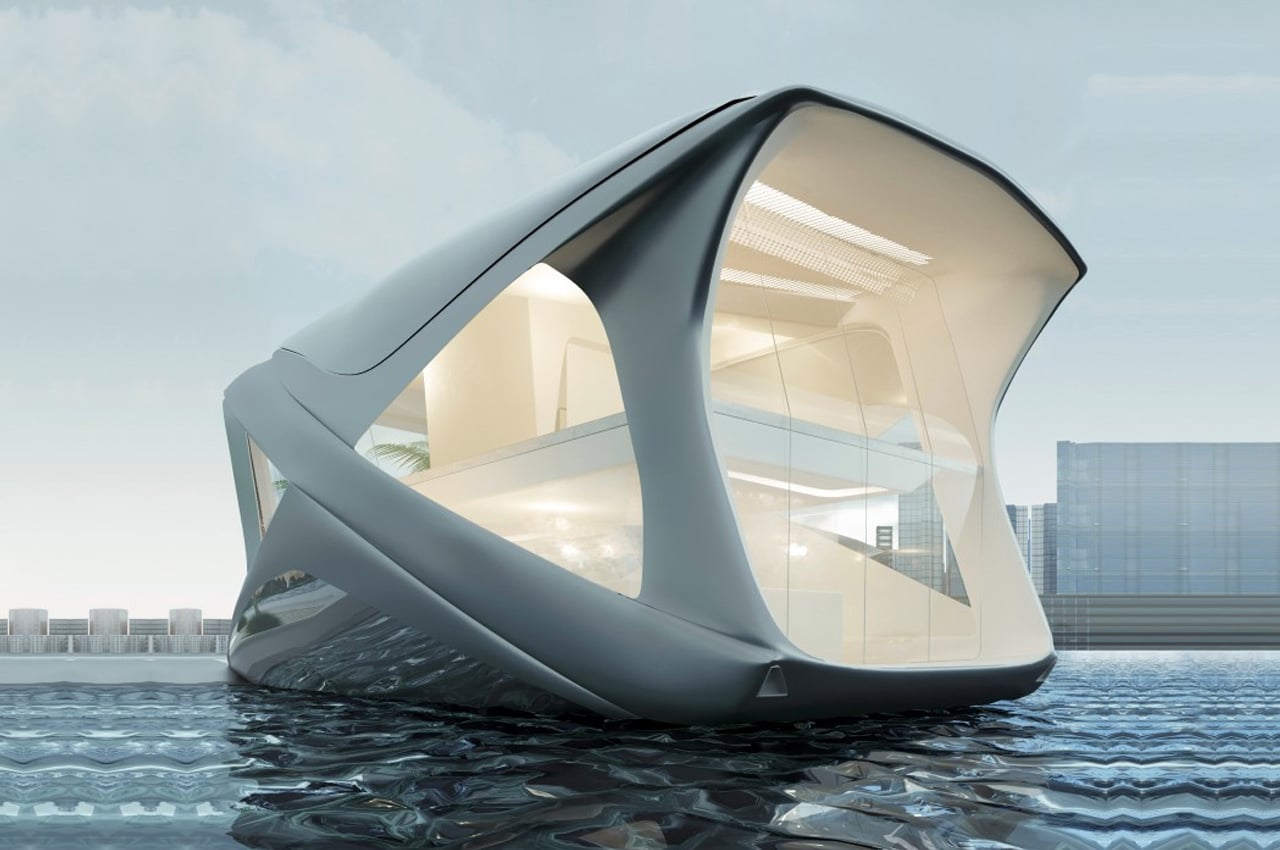
Climate change and global warming, repercussions to our actions are closing up to us fast – just open the news and you will see headlines about raging wildfires, hiked up temperatures as well as floods across the world. While the world, and governments overall try to backtrack our steps, designers are looking at alternate solutions – from housing solutions to green energy creations, we have solutions that attempt to keep humanity safe while saving the planet.
Rising population and rising sea levels means we are running out of viable land space to hold people. One of the solutions proposed is the Ocean Community vessel, a structure designed to extend a city’s coastline. The house is designed like a floating object designed to travel to the coast with ease to access the city’s facilities and allow the users to experience city life before returning back to their home.
Imagine a more natural solution to the drab grey boxes or portable ACs we need in public places to keep the people cool. Designed by AREP, this bamboo structure comes with a hyperboloid shape helps improve the stability and the overall effect is of standing next to an open pool on a hot day and feel the cool breeze blowing against your skin.
They say the best way to prevent a future disaster is to study our past mistakes and evolve from it. The Earth Black Box is one such initiative – an indestructible recorder designed to record our climate change and civilization. The structure is located in Tasmania and has already started recording the changes.
If you think trees alone are not enough, Serbian scientists have designed LIQUID3 – an outdoor, urban photo-bioreactor that uses microalgae to perform photosynthesis and remove the same amount of CO2 as two ten-year-old trees. Awarded with Green Product Award’s Green Concept Award for 2022, it needs only a light source continue processing CO2. Besides its appeal to sustainable design, LIQUID3 also suggests an efficient use of public land, while creating space for interactive ads and a high-value fertiliser.
With rising sea levels, each country has to amp up its game – and Maldives, known for its exotic beaches is also one of the lowest lying countries in the world with an average elevation of just 2.2 feet above the sea level. This project, named the Maldives Floating City will be constructed close to the Maldives capital and includes thousands of waterfront residences dating along a flexible grid that is spread across a 200-hectare lagoon.
Click here for more designs that aim to solve global warming and give us a sustainable lifestyle.